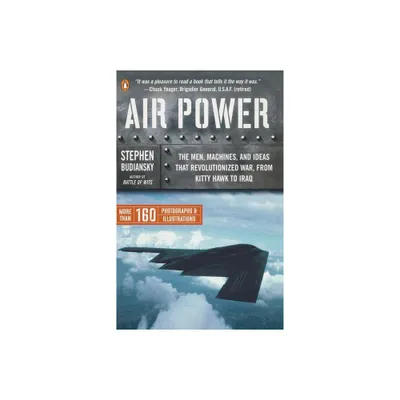Home
The Transformation of American Air Power
Loading Inventory...
Barnes and Noble
The Transformation of American Air Power
Current price: $44.95


Barnes and Noble
The Transformation of American Air Power
Current price: $44.95
Loading Inventory...
Size: OS
*Product Information may vary - to confirm product availability, pricing, and additional information please contact Barnes and Noble
Since the unprecedentedly effective performance of the allied air campaign against Iraq during Operation Desert Storm, the role of American air power in future wars has become a topic of often heated public debate. In this balanced appraisal of air power's newly realized strengths in joint warfare, Benjamin Lambeth, a defense analyst and civilian pilot who has flown in most of the equipment described in this book, explores the extent to which the United States can now rely on air-delivered precision weapons in lieu of ground forces to achieve strategic objectives and minimize American casualties.
Beginning with the U.S. experience in Southeast Asia and detailing how failures there set the stage for a sweeping refurbishment of the nation's air warfare capability, Lambeth reviews the recent history of American air power, including its role in the Gulf War and in later conflicts in Bosnia, Kosovo, and Serbia. He examines improvements in areas ranging from hardware development to aircrew skills and organizational adaptability.
Lambeth acknowledges that the question of whether air power should operate independently or continue to support land operations is likely to remain contentious. He concludes, however, that air power, its strategic effectiveness proven, can now set the conditions for victory even from the outset of combat if applied to its fullest potential.
Beginning with the U.S. experience in Southeast Asia and detailing how failures there set the stage for a sweeping refurbishment of the nation's air warfare capability, Lambeth reviews the recent history of American air power, including its role in the Gulf War and in later conflicts in Bosnia, Kosovo, and Serbia. He examines improvements in areas ranging from hardware development to aircrew skills and organizational adaptability.
Lambeth acknowledges that the question of whether air power should operate independently or continue to support land operations is likely to remain contentious. He concludes, however, that air power, its strategic effectiveness proven, can now set the conditions for victory even from the outset of combat if applied to its fullest potential.


















